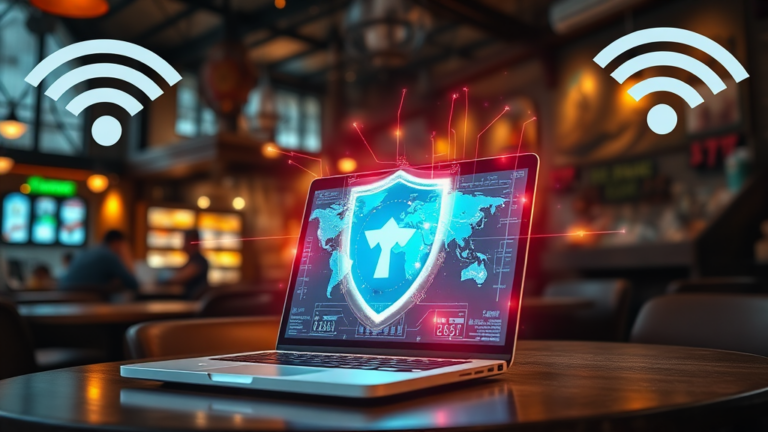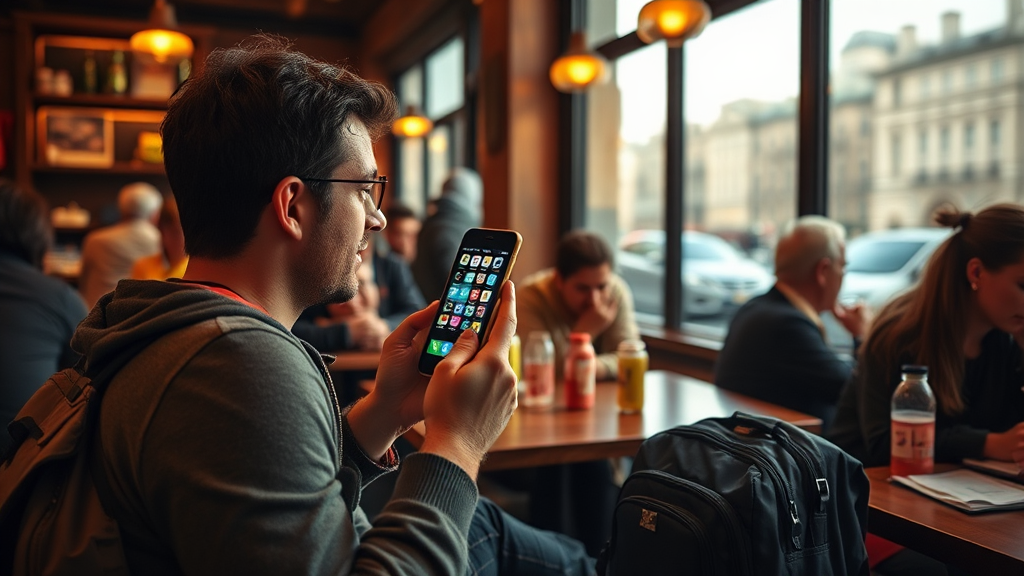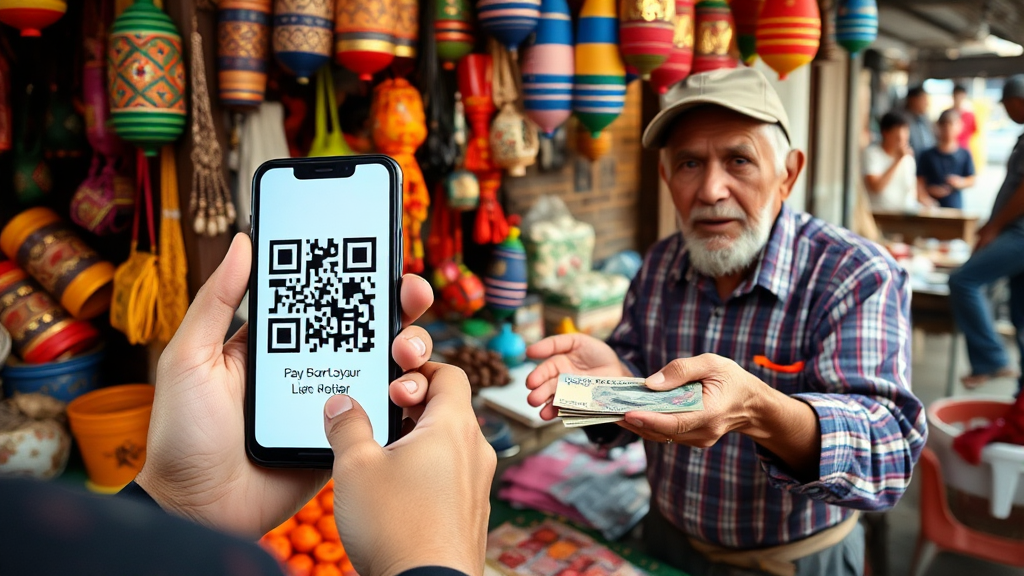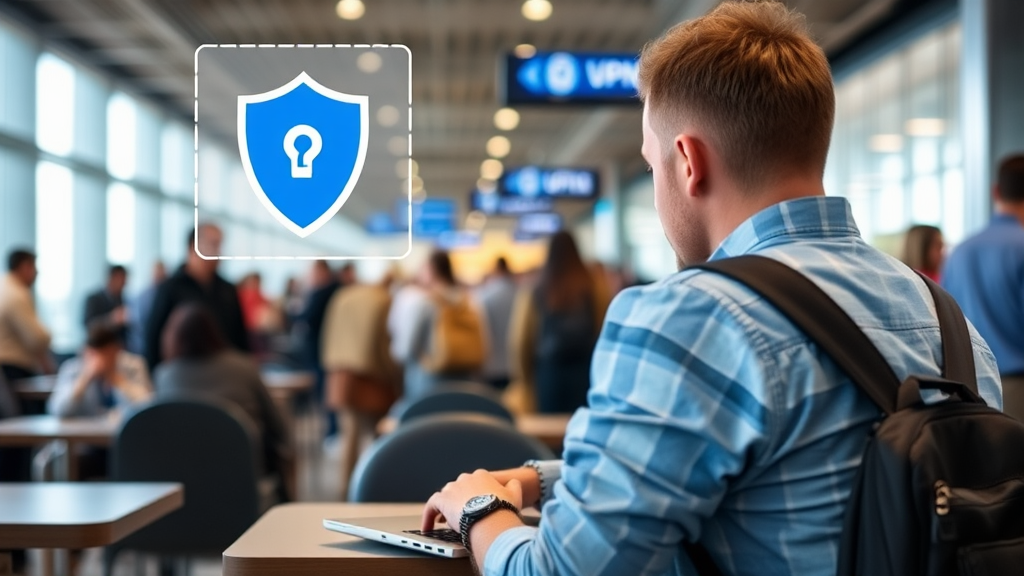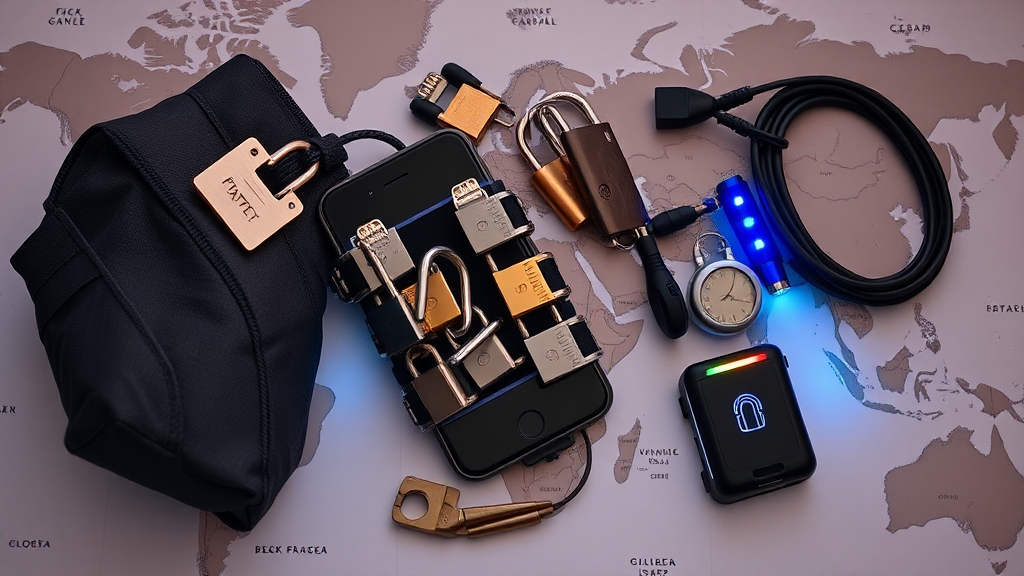Traveling abroad opens up new experiences, but it also exposes you to digital risks. VPNs offer a shield against these threats, ensuring your online activities remain private and secure. This guide explores why VPNs are essential for international travelers and how to use them effectively.
Understanding VPNs and Their Benefits
A Virtual Private Network (VPN) creates an encrypted tunnel for your internet traffic, masking your IP address and location. This technology provides several advantages for travelers:
- Enhanced privacy: Prevents ISPs and hackers from monitoring your online activities
- Access to geo-restricted content: Allows you to bypass regional content blocks
- Protection on public Wi-Fi: Secures your data when using potentially unsafe networks
- Avoidance of censorship: Helps you access blocked websites in countries with internet restrictions
Choosing the Right VPN for Travel
Not all VPNs are created equal. When selecting a VPN for international travel, consider these factors:
- Server locations: Opt for VPNs with servers in multiple countries
- Speed and reliability: Look for providers offering fast connections and minimal downtime
- Security features: Ensure the VPN uses strong encryption and has a no-logs policy
- Device compatibility: Choose a VPN that works across all your devices
- User-friendly interface: Select an app that’s easy to use, even for beginners
Some recommended VPNs for travelers include ExpressVPN, NordVPN, and ProtonVPN. Research and compare options to find the best fit for your needs and budget.
Setting Up and Using Your VPN Abroad
Proper VPN setup is crucial for maintaining security while traveling. Follow these steps:
- Install before you travel: Download and set up your VPN app before leaving home
- Test the connection: Ensure the VPN works correctly on all your devices
- Enable auto-connect: Set your VPN to connect automatically when you join a new network
- Use the kill switch feature: This prevents data leaks if your VPN connection drops
When abroad, connect to your VPN before accessing any websites or apps, especially when using public Wi-Fi. Choose server locations based on your needs – local servers for faster speeds or home country servers for accessing familiar content.
Additional Cybersecurity Measures for Travelers
While VPNs provide significant protection, they’re just one part of a comprehensive travel security strategy. Implement these additional measures:
- Use two-factor authentication (2FA): Add an extra layer of security to your accounts
- Update software and apps: Ensure all your devices have the latest security patches
- Be cautious with public USB charging stations: Use your own charger or a USB data blocker
- Enable remote wipe features: Protect your data if your device is lost or stolen
By combining these practices with a reliable VPN, you’ll significantly reduce your digital vulnerability while enjoying your travels.
Maximizing VPN Performance While Traveling
To get the most out of your VPN during international trips, follow these tips:
- Choose nearby servers: Connect to servers close to your physical location for faster speeds
- Switch protocols: Try different VPN protocols to find the best balance of speed and security
- Use split tunneling: Route only sensitive traffic through the VPN to improve overall performance
- Avoid free Wi-Fi hotspots: Stick to trusted networks whenever possible
Regularly test your VPN connection to ensure it’s working correctly. Use online tools to check for IP and DNS leaks.
Overcoming Common VPN Challenges Abroad
Travelers often face specific issues when using VPNs internationally. Here’s how to address them:
- VPN blocks: Use obfuscated servers or switch to a different VPN provider if your current one is blocked
- Slow connections: Try connecting to different servers or using a lighter VPN protocol
- Battery drain: Adjust VPN settings to optimize for mobile devices and conserve power
- Inconsistent performance: Keep your VPN app and device software up to date
If problems persist, contact your VPN’s customer support for personalized assistance.
Legal Considerations for VPN Use in Different Countries
VPN legality varies worldwide. Research the laws of your destination before traveling:
- VPN-friendly countries: Most Western nations allow unrestricted VPN use
- Restricted countries: Some nations like China and Russia limit VPN access
- Prohibited countries: A few countries, such as North Korea, ban VPNs entirely
Always respect local laws and be prepared with alternative communication methods if VPNs are restricted.
Table: VPN Legality in Popular Travel Destinations
| Country | VPN Status |
|---|---|
| USA | Legal |
| UK | Legal |
| Japan | Legal |
| China | Restricted |
| UAE | Restricted |
Enhancing Overall Digital Security for International Travel
While VPNs provide significant protection, a comprehensive approach to digital security is essential:
- Use secure messaging apps: Opt for end-to-end encrypted communication tools
- Employ a password manager: Generate and store strong, unique passwords for all accounts
- Enable find my device features: Set up tracking for your devices in case of loss or theft
- Backup your data: Regularly sync important information to a secure cloud service
Consider using a travel-specific email address and social media accounts to minimize exposure of your primary digital identity.
Conclusion: Embracing Safe and Open Internet Access Worldwide
VPNs are indispensable tools for the modern traveler, offering a blend of security, privacy, and unrestricted internet access. By choosing the right VPN, setting it up correctly, and combining it with other cybersecurity measures, you can explore the world with confidence in your digital safety.
Remember to stay informed about local laws, adapt your VPN usage as needed, and always prioritize your online security. With these strategies in place, you can fully embrace the digital aspects of your travel experiences while keeping your personal information protected.

